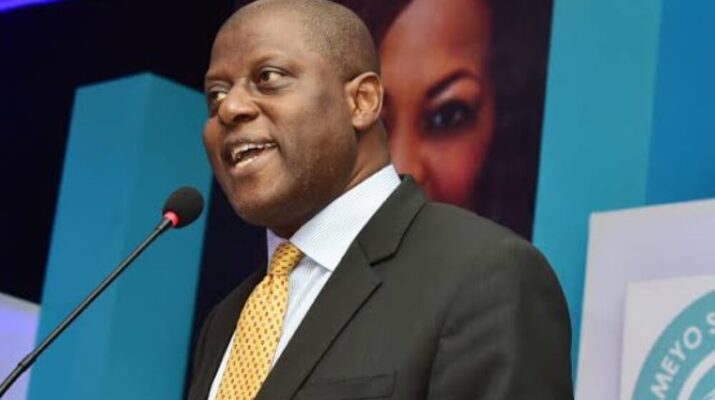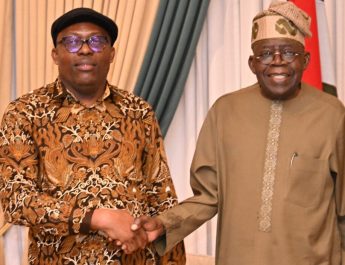As the year 2025 begins to unfold, experts in security and economy call on Nigerians to brace up for more intense national challenges than what they went through the previous year, insisting that more citizens will be forced into deeper poverty level because the political class is yet to find solution to Nigeria’s economic hardship
By Mathew Obinnakwere
Recently, governor of the Central Bank of Nigeria (CBN), Olayemi Cardoso, was quoted to have said that the agriculture and manufacturing sectors would continue to underperform due to economic policies of the Federal Government.
During an address at the Annual Dinner of the Chartered Institute of Bankers of Nigeria (CIBN), the CBN governor said: “Improved oil production and increased domestic refining also contributed to growth.
“However, agriculture and manufacturing continue to underperform. The manufacturing sector is particularly affected as the cost of funds became too high to borrow for both new businesses and for expansion of existing ones.”
Cardoso was making reference to the highly criticized CBN measure to curb inflation, which had risen to 34.6 percent in 2024. To curb the rising inflation caused by the floating of the Naira and removal of fuel subsidy by the President Bola Ahmed Tinubu government, the apex bank’s Monetary Policy Committee (MPC) had to increase Deposit Money Banks’ (DMBs) lending rates to 26.25 percent in May 2024.
The MPC was to raise interest rate again to 26.75 percent in July 2024, 27.25 percent in September 2024, and yet another hike in interest rate of 27.50 percent before the end of 2024.
These hikes in interest rate affected both the agriculture and manufacturing sectors at the grassroots level negatively as operators in these sectors found borrowing to finance their investments unattractive.
Based on the dwindling of the agriculture and manufacturing sectors, unemployment will continue to increase in 2025, this is the view of many analysts. Despite the vast arable land in the country and untapped manpower, Nigerian youths are still wallowing in unemployment due lack of huge investment in agriculture and dying manufacturing sector.
Government at all levels has no basic incentives and encouragement to push young school leavers into commercial farming. Hence every graduate from schools and colleges are looking for elusive employment.
Last December, recruitment exercise announced by the Nigeria Customs Service (NCS), which had vacancies for 3,927 candidates received a whooping 573,000 applications, according Abdullahi Maiwada, the national image maker for the Service.
In 2025, thousands of other youths will graduate from various institutions of higher learning to add to the ever swelling the already bloated labour market in the country.
Analysts lamented that the country’s health sector had remained in disarray, compelling expert health workers to continue to Japa from Nigeria. The Japa syndrome will affect healthcare provision in 2025 government’s budget for the health sector has remained diminutive.
Inflation will continue to rise in 2025 which might compel the CBN to continue to push up the interest rate. The indications are obvious as the exchange rate of the naira to dollar might hit N2,000/$1. Companies have begun to raise prices of their commodities in order to remain in business. For example, Mobile Network Operators (MNOs) in the country had early in the year sought government’s approval to raise its tariffs by 100 percent.
Minister of Communications, Innovation and Digital Economy, Dr. Bosun Tijani, disclosed the impending increase in telecom tariffs in Abuja on Wednesday, January 8, 2025 during a stakeholders meeting with the MNOs.
He said: You have seen over the past weeks that there has been agitation from some of these companies to increase tariff. They are requesting for 100 percent tariff increase.”
One week after the disclosure, Tijani on Wednesday, January 15, 2025 insisted that the increase in telecom tariffs would be as high as 60 percent, while he stressed that the increase was necessary “to ensure Nigeria experienced improved connectivity across all devices.”
As the MNOs increase their tariffs, so also will the increase occur in other sectors of the economy to further raise the inflationary rate, which will decrease the purchasing power of the already impoverished citizens.
Transportation cost will be another critical factor that will plunge more Nigerians into poverty. Late December 2024, there was a little drop in the price of the Premium Motor Spirit (PMS) as fuel sold at N925 and N989 in various locations of the country.
The little drop in fuel pump price could not force down transportation cost across the country. Lately there is speculation that fuel pump price may rise above N1,000. Such increase in fuel price would affect prices of other commodities.
The manufacturing sector will continue to suffer shortage of power supply. The Small and Medium-Scale Enterprises (SMEs) will be contending with the hike in PMS price which will affect productivity and staff retention.
Minister of Power, Adebayo Adelabu, told the Senate that persistent national grid collapse would be witnessed in 2025 due to insecurity. Appearing before the Senator-Enyinnaya Abaraibe-led Senate Committee on Power on Monday, January 13, 2025 where he went to defend the ministry’s budget for 2025, Adelabu insisted that his ministry had little or no control over grid collapses this year, but promised that it will try to reduce the frequency of the collapse.
Adelabu disclosed that failure of the government to fix the Shiroro-Kaduna-Mando line has put undue pressure on the grid which results in the frequent collapses, adding: “We recognize the issues with full or partial grid collapses, but our focus is on reducing the time it takes to restore power. We are actively collaborating with security agencies to achieve this.”
Another national challenge that experts said would intensify this year is insecurity. Many analysts are unanimous in their assertion that President Tinubu does not have the magic wand to deal with insecurity in 2025.
Killings in Benue State as a result farmers-herdsmen clashes has remained unabated. Benue State is reputed as the “Food Basket of the Federation”, but the insecurity in the state has made a caricature of the slogan.
Thousands of Benue State people have been displaced from their homes, many living in the deplorable Internally Displaced Peoples (IDP) camps scattered in the state. On the Christmas Day 2024, about 17 locals were murdered in cold blood in Kwande area of the state.
Last week, farmers in Benue State under the aegis of the Association of United Farmers of Benue Valley (AUFBV) urged the Federal Government to help them secure the release of 394 corpses of Tiv farmers who were allegedly killed by militia groups in neighbouring Keana Local Government Area of Nasarawa State between June 2024 and January 2025.
President of AUFBV, Denen Utsa revealed the ugly story when he led his group to the palace of Ter Tyoshin, His Royal Highness, Daniel Abomtse, in Naka, Gwer West Local Government Area of Benue State.
These killings are affecting local farmers in the state, thereby reducing food production capacity of the nation.
Also last week, terrorists killed over 40 persons in Dumba Community of Baga Town in Borno State. There are killings, killings and killings across the country. Analysts said except the Tinubu administration worked extra hard to tackle insecurity in the land, it will definitely escalate beyond what has been experienced in the past.




